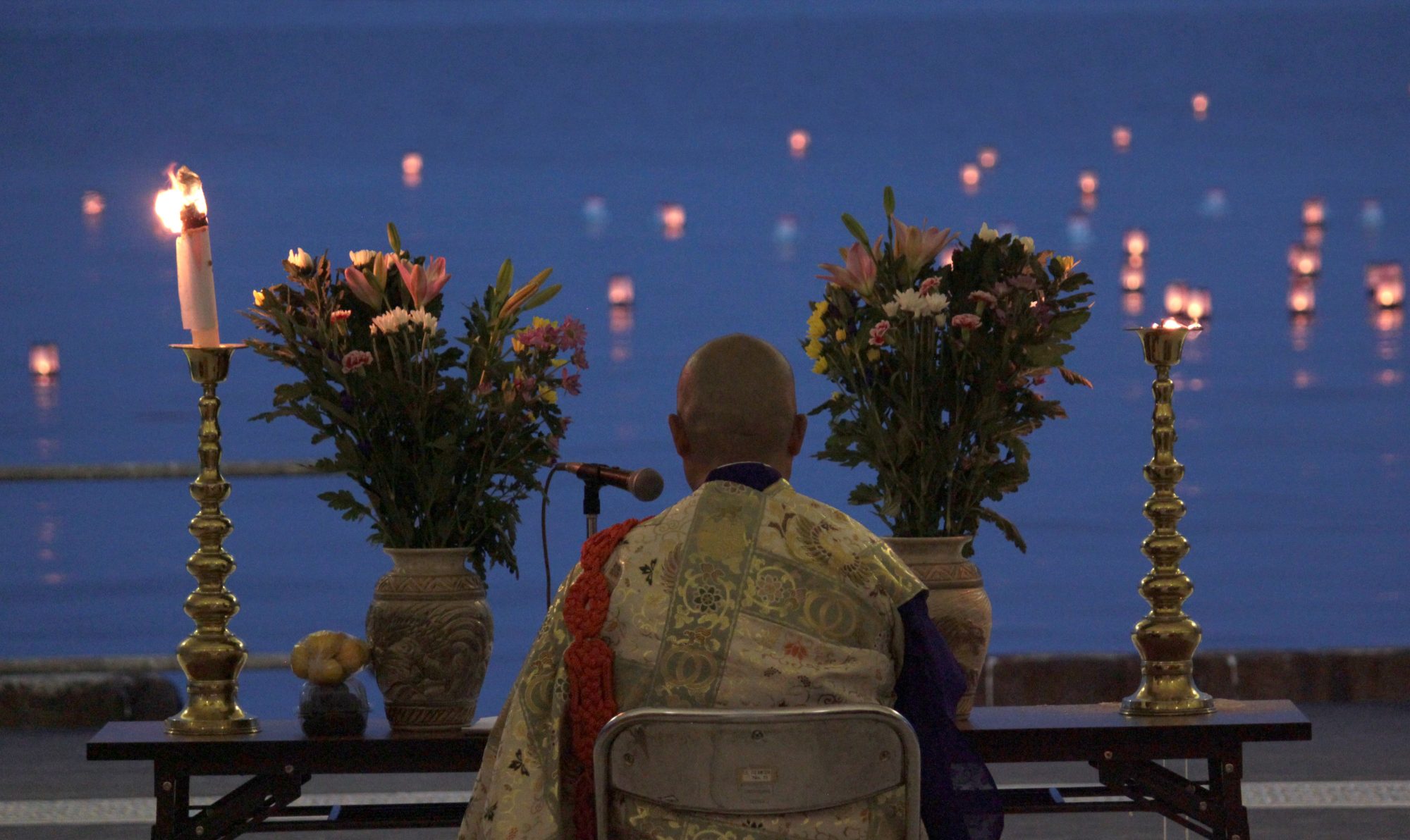-

"Yes we can support local produce." A rice field in Iitatemura, uncultivated by government order.
-

Fukushima City Lantern Festival
-

Fukushima City Lantern Festival
-

Fukushima City Lantern Festival
-

Sugeno's rice harvest team: Serbian volunteer Milo, daughter Mizuho, and Owada and his grandparents, evacuated from Namie.
-

84-year-old rice farmer Yasukawa is defying a government order to burn his rice harvest.
-

-

Yasukawa shows conflicting government orders regarding his rice.
-

-

-

Watanabe turns over his field in hopes of burying radioactive cesium deeper than his vegetables' roots will reach.
-

-

-

Sunset over Mt. Shinobu, Fukushima City.
Just as the U.S. State Department announces that it’s safe to be here, it’s time for us to leave. We conclude our 20 weeks living and working among the organic farmers and food producers of Fukushima, a week after the State Department narrowed its travel advisory against visiting the area around the power plant from 80 kilometers to the Japanese government’s 20-kilometer evacuation zone.
Seven months since the beginning of the crisis, Japan stumbles toward recovery. Evacuated communities are being reopened near the nuclear plant, even as many efforts to decontaminate land are proving ineffective. With a number of notable exceptions, testing of rice and vegetables is showing much less contamination than was expected based on results in Chernobyl. Researchers investigate the reasons for these levels, considering the differing composition of Japanese soil, particularly certain minerals and bacteria that may remove radioactive cesium or prevent plants from absorbing it—bacteria that may thrive in organically cultivated land.
But the food testing regime is still sporadic, and no amount of lower test results will be sufficient to convince much of the public that Fukushima food is safe to eat. The organic farmers here toil to repair their land using natural methods (land that many of their families have tilled since before the U.S. was a country), to grow their food as free as possible of radionuclides, and to accurately communicate the condition of their produce to consumers. Constantly exposed to background radiation and inhaled particles in their fields, as well as from food and water, the farmers rank with cleanup workers in the groups at greatest risk of suffering health damage.
We will edit the film in Chicago through the fall and winter, and return to Japan next March to cover how the farmers weathered the seasons and how they fare as they prepare to plant again, a year after the disaster. In the meantime, we still need your support to cover the costs of postproduction. Please spread the word and if you can please make a tax-deductible donation to the project.
 Yasukawa's kitten follows him everywhere
Yasukawa's kitten follows him everywhere Seeds of Hope
Seeds of Hope Milo shows the 30,000 km he has bicycled on his "Holy Map of Japan"
Milo shows the 30,000 km he has bicycled on his "Holy Map of Japan" On a clear day you could see the Fukushima Daiichi Nuclear Power Plant, 5 km down the coast.
On a clear day you could see the Fukushima Daiichi Nuclear Power Plant, 5 km down the coast. One of many ships that remain where they were washed inland by the 2011 tsunami, in Minamisoma, Fukushima.
One of many ships that remain where they were washed inland by the 2011 tsunami, in Minamisoma, Fukushima. Women organic farmers of Fukushima (and friends)
Women organic farmers of Fukushima (and friends) Odaka-Jinjo temple is the original site of the centuries-old Nomaoi Horse Festival
Odaka-Jinjo temple is the original site of the centuries-old Nomaoi Horse Festival Nomaoi Horse Festival
Nomaoi Horse Festival 25-year-old Mizuho Sugeno of Seeds of Hope in Nihonmatsu
25-year-old Mizuho Sugeno of Seeds of Hope in Nihonmatsu
 Most of this boy's friend leave Fukushima for summer vacation. This year his mother finally decided to let him go outside during vacation.
Most of this boy's friend leave Fukushima for summer vacation. This year his mother finally decided to let him go outside during vacation.
















































































